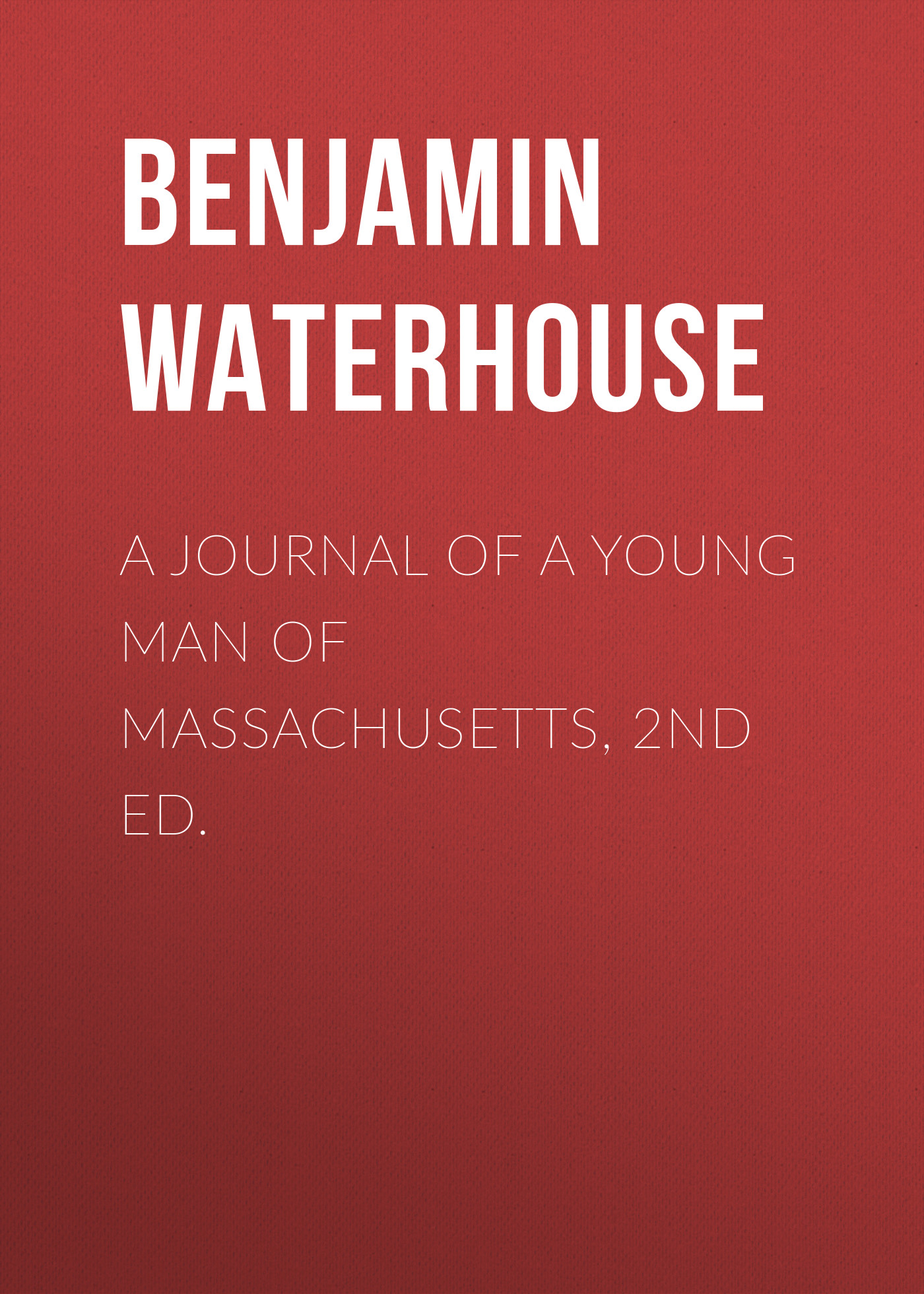Электронная книга: Benjamin Waterhouse «A Journal of a Young Man of Massachusetts, 2nd ed.»

|
Издательство: "Public Domain"
электронная книга Скачать бесплатно на Litres |
Benjamin Waterhouse
Benjamin Waterhouse (
Biography
Early life
Waterhouse was born into a
Medical career
After returning to the United States in 1782, Waterhouse joined the faculty of the new medical school at Harvard as one of three professors, including John Warren and Aaron Dexter, in the area of Theory and Practice of Physic. He was also elected that same year as a Fellow at
mallpox vaccine
With the support of then-President
Personal life
In 1788, he married Elizabeth Oliver, with whom he had six children. She died in childbirth in 1815. In 1819, he married Louisa Lee; no children resulted from this marriage. [ [http://www.faqs.org/health/bios/70/Benjamin-Waterhouse.html Benjamin Waterhouse Biography (1754-1846) ] ]
Death and Legacy
He died in his home in Cambridge in 1846, and was survived by his wife Louisa. He is interred at
elected works
"A Synopsis of a Course on the Theory and Practice of Medicine. In Four Parts (1786)"
"The Rise, Progress, and Present State of Medicine" (1792)
"A Prospect of Exterminating the Small Pox, Part I (1880), Part II (1802)"
"Cautions to Young Persons Concerning Health...Showing the Evil Tendency of the Use of Tobacco...with Observations on the Use of Ardent and Vinous Spirits" (1805)
"Information Respecting the Origin, Progress, and Efficacy of the Kine Pock Inoculation" (1810)
"The Botanist, Being the Botanical Part of a Course of Lectures on Natural History...Together with a Discourse on the Principles of Vitality" (1811) "A Journal of a Young Man of Massachusetts" (1816) [ [http://www.faqs.org/health/bios/70/Benjamin-Waterhouse.html Benjamin Waterhouse Biography (1754-1846) ] ]
References
*Dr. Benjamin Waterhouse: A life in medicine and public service (1754-1846), by Philip Cash, Boston Medical Library & Science History Publications (a division of Watson Publishing International), USA, 2006.
External links
* [http://www.redwoodlibrary.org/notables/waterhouse.htm Biography]
* [http://www.countway.harvard.edu/rarebooks/exhibits/waterhouse/monster2.html Second biography]
ee also
Источник: Benjamin Waterhouse
Другие книги схожей тематики:
| Автор | Книга | Описание | Год | Цена | Тип книги |
|---|---|---|---|---|---|
| Benjamin Waterhouse | A Journal of a Young Man of Massachusetts, 2nd ed. | — Public Domain, электронная книга Подробнее... | электронная книга |
См. также в других словарях:
Massachusetts in the American Civil War — Union States in the American Civil War California Connecticut Illinois Indiana Iowa … Wikipedia
education — /ej oo kay sheuhn/, n. 1. the act or process of imparting or acquiring general knowledge, developing the powers of reasoning and judgment, and generally of preparing oneself or others intellectually for mature life. 2. the act or process of… … Universalium
biblical literature — Introduction four bodies of written works: the Old Testament writings according to the Hebrew canon; intertestamental works, including the Old Testament Apocrypha; the New Testament writings; and the New Testament Apocrypha. The Old… … Universalium
Anthropology and Archaeology — ▪ 2009 Introduction Anthropology Among the key developments in 2008 in the field of physical anthropology was the discovery by a large interdisciplinary team of Spanish and American scientists in northern Spain of a partial mandible (lower… … Universalium
BIBLE — THE CANON, TEXT, AND EDITIONS canon general titles the canon the significance of the canon the process of canonization contents and titles of the books the tripartite canon … Encyclopedia of Judaism
American literature — Introduction the body of written works produced in the English language in the United States. Like other national literatures, American literature was shaped by the history of the country that produced it. For almost a century and a… … Universalium
